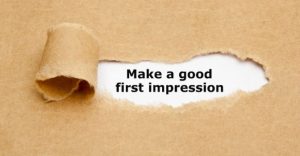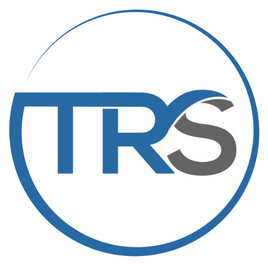What Not To Say In An Interview
What Not To Say In An Interview You might be nervous before an interview, especially if it’s your first one. But there are some things you should never say during an interview, no matter how nervous you are. If you do end up saying any of these things, it could ruin your chances of getting…

What Not To Say In An Interview
You might be nervous before an interview, especially if it’s your first one. But there are some things you should never say during an interview, no matter how nervous you are. If you do end up saying any of these things, it could ruin your chances of getting the job. Avoiding these phrases and attitudes will help you make the best possible impression and sell your strengths to the interview panel.
So, what should you not say in an interview?
1. “I don’t know.”
If the interviewer asks you a question and you have no idea how to answer it, don’t say that you don’t know. Instead, try to come up with an educated guess or ask for clarification on the question. This is an opportunity to show your critical thinking and problem-solving skills, so take your time and see if you can come up with a solution.
2. “I don’t have any questions.”
At the end of the interview, the interviewer will usually ask if you have any questions. This is your chance to show that you’re interested in the job and company. If you say that you don’t have any questions, it makes you look uninterested and like you didn’t prepare for the interview.
3. “It’s on my resume.”
The interviewer is asking you questions for a reason. They want to get to know you and see how you would be a good fit for the job, as well as how you communicate with others. If you just keep referring them back to your resume, they’re not going to get the information they need. Plus, it makes you look like you can’t hold a conversation or think on your feet.
4. “I don’t have any weaknesses.”
Everyone has weaknesses, so don’t say that you don’t have any. This makes you sound like you’re not being honest, are trying to hide something, or lack the skill of self-reflection. Instead, be honest about your weaknesses and what you’re doing to improve them.
5. “I don’t have any experience.”
If you don’t have any relevant experience, that’s okay, but you don’t need to say it in the interview. Instead, focus on your transferable skills and how they can be applied to the job. This is an opportunity to sell yourself and show why you would be a good fit for the job, even if you don’t have direct experience.
6. “How much leave do I get?”
Leave and vacation time is important, but you shouldn’t bring it up in the interview. This question makes it seem like you’re more interested in taking time off than actually working. Plus, it’s something that can be negotiated after you’ve got a job offer.
7. Anything negative about your previous boss or company
Even if you had a bad experience at your previous job, resist the urge to bad mouth your boss or company in the interview. This makes you look like a negative person who doesn’t handle conflict well. If you’re asked about a difficult situation, try to spin it in a positive light or keep your answer neutral. Focus more on your personal reasons for seeking employment elsewhere, eg. ‘I’m looking to transition to a more client-focussed role and challenge myself”. Whatever you do, don’t speak negatively about your previous employer – the hiring manager will view this as a big red flag.
8. Personal information or stories
It’s not necessary to let them know that you had a big night on the weekend and therefore had to set five alarms this morning to wake up for your 9am interview. Leave the personal stories for your friends and focus on your professional persona, even if the company you are applying to has a more relaxed work environment. Avoid talking about your personal life during the interview process.
9. Buzzwords or clichés
You know the ones. A “Team player” who “thinks outside the box” and whose greatest weakness is being a “perfectionist”. These words are so overused that they offer little value without concrete examples to back them up. If you’re going to use one of these words or phrases to describe yourself, make sure to follow it with a specific story of a time you showed this quality. You should also avoid filler words like ‘um’, ‘like’ and ‘yeah’ as much as you can.
10. Ask what the company does
Always do your research on the company before an interview. This shows that you’re interested in working there and are familiar with their products or services. Asking what the company does makes it seem like you didn’t bother to do any research and don’t really know what you’re getting yourself into.
3 Things You Should Never Do In An Interview

Show up late (or not show up at all)
There may be extraordinary circumstances that meant you were unable to attend the interview and unable to call ahead. However, barring one of these, do everything in your power to arrive on time (or early) to your interview. There’s nothing that makes a worst first impression than showing up late and wasting other people’s time.
Look disinterested/bored
If you’re looking at your watch or phone, fidgeting in your seat or asking when you’ll be able to leave because your parking ticket expires soon, you’ll appear like you’re not taking the job seriously. Interviewers want to know that you’re interested in the job and will be present and engaged at work. Convey your enthusiasm with body language, eye contact and a genuine interest in the conversation.
Swear or wear clothing with inappropriate phrases on it
Even if the company has a relaxed dress code, it’s important to remember that first impressions count. If you’re interviewing for a more formal job, err on the side of caution and dress conservatively. As for swearing, it’s always best to keep your language clean no matter who you’re interviewing for. For more tips read our blog on what to wear to an interview.
FAQs for Job Interview Success – 2024 Guide
Start your job search with TRS
Now that you know what not to say, check out what you should say in our TRS guide to the 10 Most Common Interview Questions and Answers in Australia. Looking for more? You can also read our top 5 tips for Nailing a Job interview.
THE 2022 JOB SEEKERS ULTIMATE GUIDE
Are you tired of your current job or career? Want to find the perfect role that’s right for you and closer than ever before without going through all those frustrating steps to do! Don’t worry. Our team at TRS Resourcing can help with both employment searches in industries ranging from mining (and more!) We’ve got the experience of working alongside skilled professionals across different fields, and we’re here to help you.

Contact Us
Find a job today by viewing our Jobs page or signing up for Job Alerts with TRS Resourcing’s recruitment agency online!
To speak with TRS Labour Hire Recruitment Consultants, please contact the following offices:
Labour Hire Melbourne 03 9917 3545

